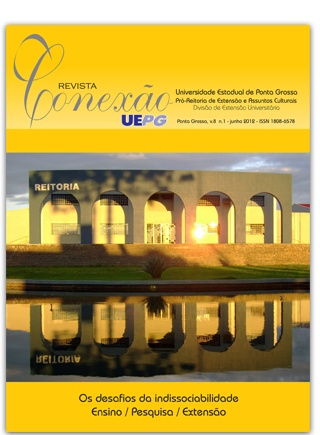TEACHING AND LEARNING SPANISH: TEXTUAL GENRES AND AFRICANITIES
Keywords:
Spanish language teaching, Teaching education, Textual genres, Africanities.Abstract
This article is about Spanish language teaching in two public schools in a city of Paraná, and it is based on the purposes, conceptions and experiences of an extension project. The theory is related to textual genres as in Bakhtin (2003) and Marcuschi (2008) and its relation to foreign language teaching, which means that learning a foreign language demands from students a critical interaction with texts (spoken and written), so that they can discuss about the reason for that text to be published, the intentions of the person who reads/writes, the social function of the text, etc., and that the grammar and vocabulary are studied only in relation to the texts. Besides, this project is based on how the law 10.639/03 can be implemented on the Spanish language teaching. According to this law, African History and Afro-Brazilian Culture should be taught and teachers should be guided on how to work with this topic in different subjects. To work with this law in foreign language teaching, we used the concept of africanities (Silva, 2005) and of multiculturalism. In this perspective, we planned on actions to have students of Spanish language to realize the linguistic and cultural diversity, that is, there are many varieties of Spanish language and many cultures can be represented in this variety, including the ones that show African origins. The methodology considered teaching education to help teachers (graduated and not graduated yet) create didactic units and organize a Spanish teaching book as a way to establish the interaction of theory and practice. The results show the necessity for universities to work together with public schools and the importance of investing on the relation theory/practice in teaching education.
Downloads
Downloads
Issue
Section
License
a) Authors retain copyright and grant the journal right of first publication with the work simultaneously licensed under a Creative Commons Attribution License that allows others to share the work with an acknowledgement of the work's authorship and initial publication in this journal.
b) By submitting an article to the Revista Conexão UEPG and having it approved, the authors agree to assign, without compensation, the following rights to the Journal: the rights of first publication and the rights to redistribute the article and its metadata to the indexing and reference services that the editors deem appropriate.
c) Readers are free to transfer, print out and use the articles published in the Journal, as long as there is always explicit mention to the author(s) and to the Revista Conexão UEPG and as long as there is no alteration of the original work. Any other use of the texts needs to be approved by the author(s) and by the Journal.






